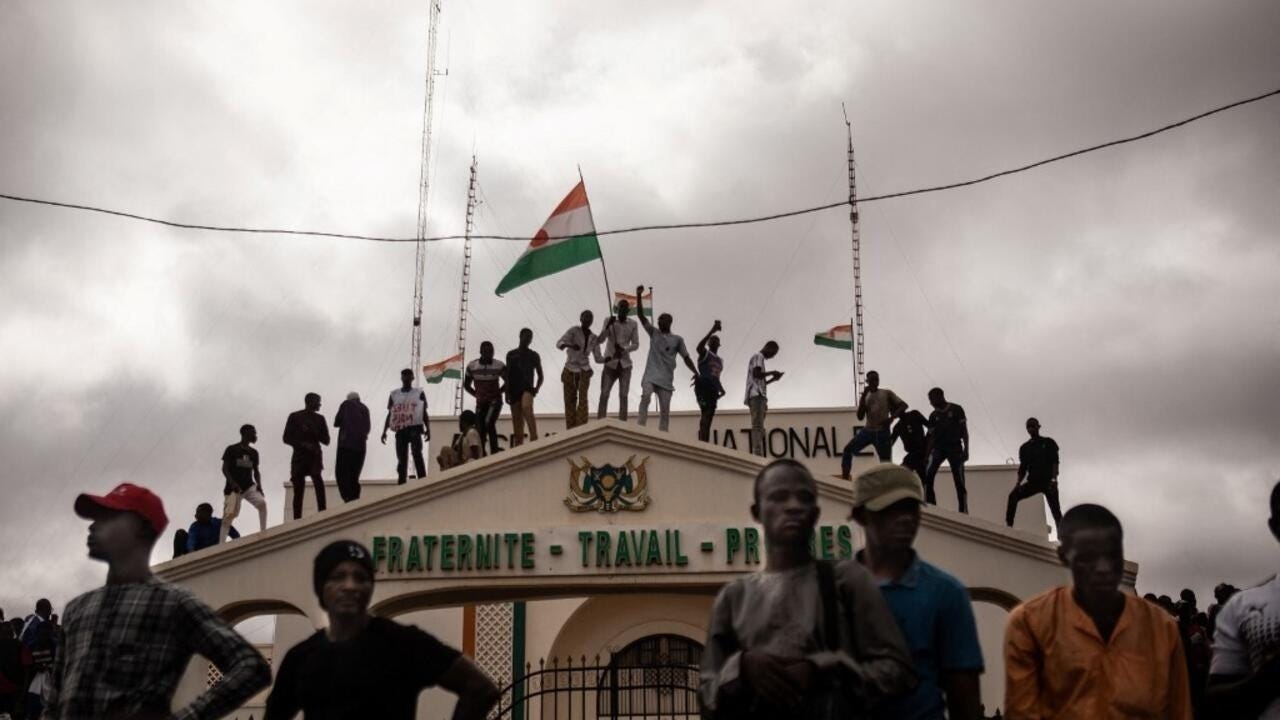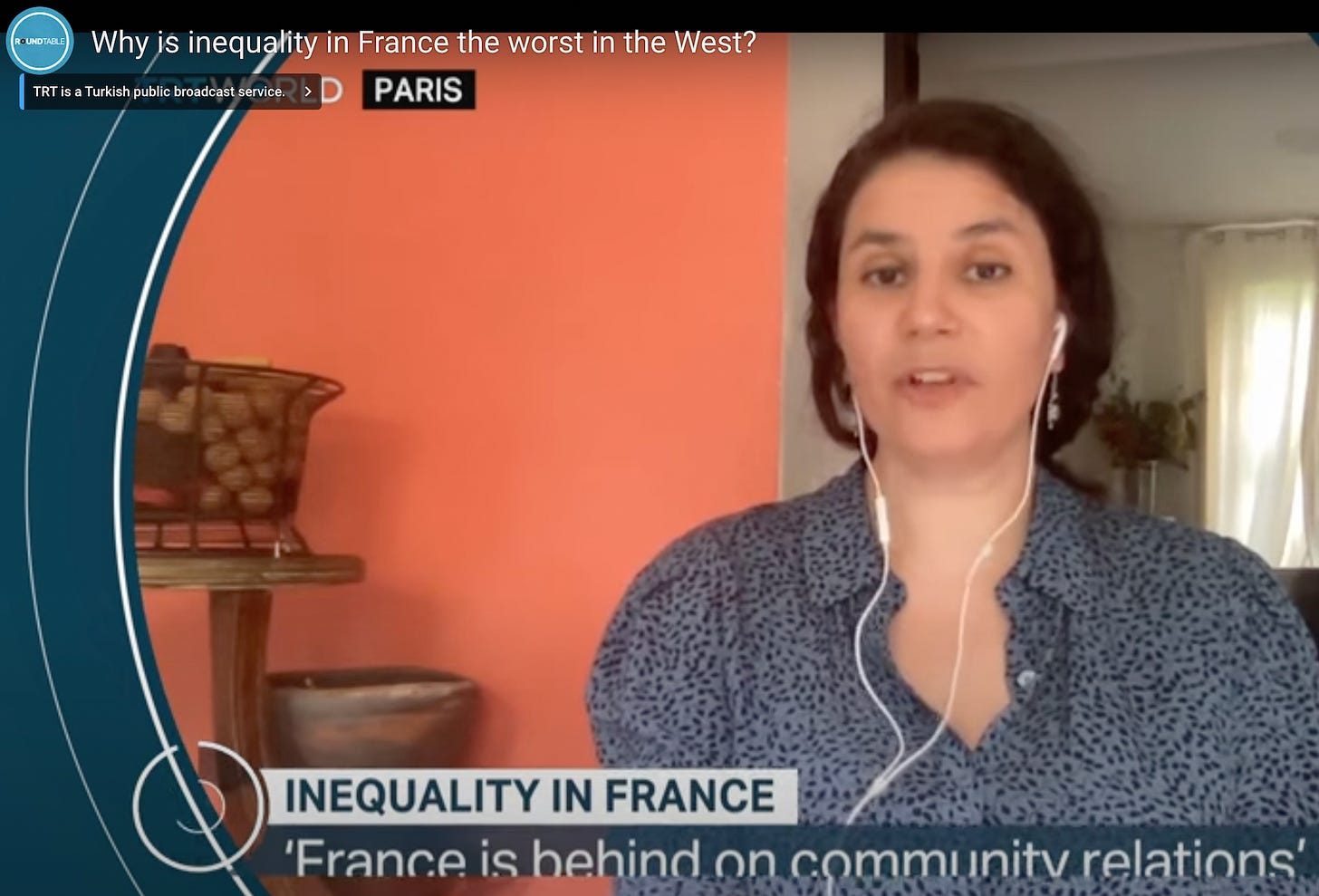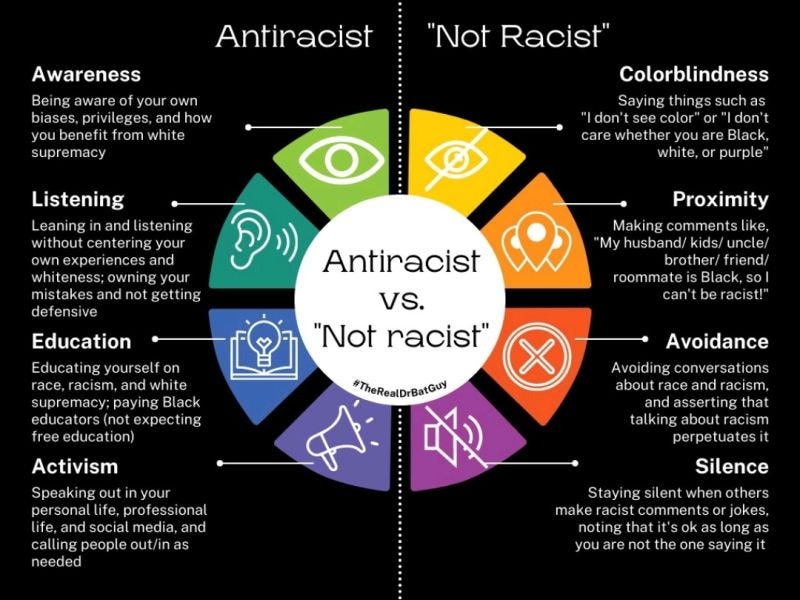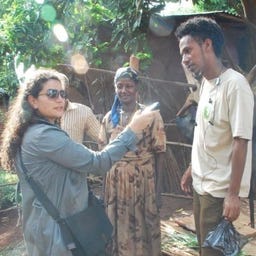Summer of Fires, Angers, and Warmongers
News from a global world, and questions over the Euro-centric treatment of news
Dear readers, friends and passers-by,
If you’re here, you must be interested in world news beyond the western-centric agenda, and in people more than just army movements.
One of the reasons I came back to hard, daily news a year ago, and stopped writing only features and cultural analysis, was the treatment of the war in Ukraine in most global media, and its ‘black-n-white, power-obsessed, war-mongering, neo-Cold-War tone.
Since then, the words “war” and “massive attacks” seem to have become more than “back in style”, they are “trending”, they sell, and they contribute to make your stories count.
If this should be deplored, peace journalism revived, and solution studied, wars are also never treated fairly or equally around the globe.
Once more, the wars in Ethiopia, in Sudan, and in the Sahel are less important for western readers than the one involving their natural ally, the USA, and its stark enemies, Russia and China.
In my work, I try to correct these prejudices by focusing on humanitarian angles, the “rest of the world”, meaning the Global South, and in doing so not to headline on the consequences of the events in the places for France’s agenda only, or the US’s…
Here are a few recent articles to start with, and if you have questions, do write.
You can also check my blog, where I post more than weekly:
http://melissa-on-the-road.blogspot.com/
Thanks for reading as usual,
melissa
*
Coup in Niger and potential conflict:
On 26 July, President Bazoum was overthrown in Niger’s capital, Niamey, when members of his own presidential guard stormed the palace to detain him.
Mohamed Bazoum, 63, won elections in 2021 in the country's first-ever peaceful transition of power.
The African Union slammed the attempted coup by Niger's military, also widely condemned internationally. The regional West African economic bloc, Ecowas, has soon been the most active in mediations and sanctions.
The West African leaders still hope to reinstate Niger's president. US President Joe Biden also asked for its liberation.
Niger's junta on Friday 4 August revoked a draft of military cooperation agreements with its former colonial ruler France – a move that could dramatically reshape the fight against Islamist insurgents in the region.
In the region, known as the Sahel, neighbouring Burkina Faso, Guinea Conakry and Mali went through similar coups in recent years, and cut their ties with France, as western military operation failed to stop the jihadists, but also injured local and national sovereignty, and inflamed anti-colonial sentiments.
Following up on week after the coup - in these two pieces, while we wait for a regional decision on whether to intervene or not, I discuss with an expert why the coup was predictable, what is now at stake, what Nigeriens want, and what we know about the junta:
Niger, what to expect now?
West Africa's regional bloc Ecowas says military intervention in Niger is 'last resort'
On the rest of the African continent, protests are rocking capitals.
There has been protests in Kenya, over the cost of living:
There has been outrage in Tunisian, around the situation for African migrants in the Mediterranean:
Human Rights Watch accused the Tunisian security forces of "serious abuses" against black African migrants. The NGO called on the European Union to suspend its migration control funding to Tunisia. Read more here:
There have also been real fires in North Africa, burning forests in Tunisia, and killing over 34 people in Algeria:
Meanwhile, the war in Sudan carries on…
It entered its fourth month in mid-July. An army delegation returned to the Saudi city of Jeddah to resume truce talks, with no result. The entire Sahel region is now impacted by the conflict:
Over three million Sudanese people have fled their homes:
Thousands of Sudanese refugees fled 'incredible violence' and crossed over to Chad:
In Senegal, worries about the coming presidential elections continue.
Supporters of Senegalese opposition leader Ousmane Sonko held more protests, despite a ban by authorities. Sonko, who was under house arrest, publicly confirmed he would run in next year's presidential elections:
Yet, a few weeks later, he was arrested again and his party dissolved.
And… last but not least, in the Democratic Republic of Congo, a political killing cast a shadow over plans for December elections:
In Europe, while Greece and Spain face terrible fires or floods, in France, anger hasn’t disappeared…
I participated in a debate discussing the state of equality in Europe on TRT World, comparing France and the UK:
Why is inequality in France the worst in the West?
Summary - On the 27th of June, a 17-year-old French boy of Moroccan and Algerian descent was shot and killed by police in Nanterre, a suburb of Paris. Protests immediately erupted, which later escalated into rioting as demonstrators set cars alight, destroyed bus stops, and shot fireworks at police. The scale of the violence has been blamed on fundamental inequalities across French society. But, is inequality really worse in France than elsewhere?
Guests: Lester Holloway, Editor of the The Voice; Melissa Chemam, French Journalist; and Renaud Foucart, Senior Lecturer in Economics at Lancaster University
For more on France, you can read my previous article:
‘Nothing can change if we’re in denial’: French-Algerian journalist on the riots that have rocked her hometown
https://inews.co.uk/news/world/french-algerian-journalist-riots-rocked-hometown-2449948
And watch my intervention on Channel 4 News here:
*
To finish on a brighter note, I’m still and always covering culture: this month of July, I went to cover the Womad festival, Womad for “world of music, arts and dance”, and focused on the most up-and-coming African bands and artists:
Vintage year for Womad festival as music tourists flock to UK
Speak soon, best,
melissa
Melissa Chemam
Journalist & Writer
Site: https://sites.google.com/view/melissachemam
Newsletter:







